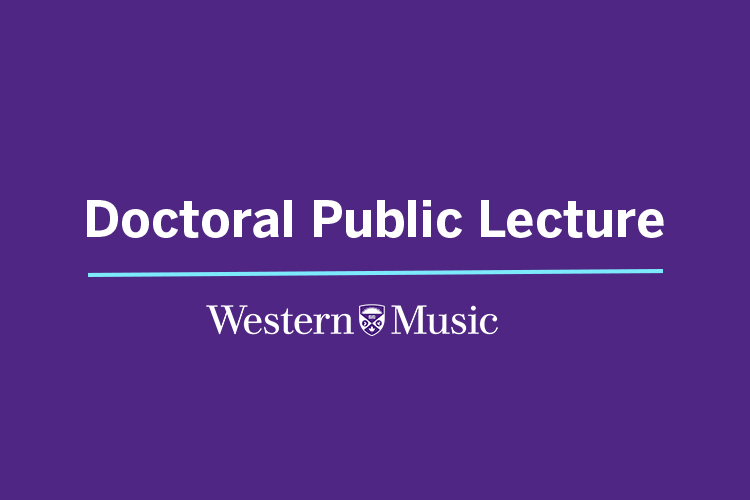Search Website
QUICK LINKS:

Doctoral Public Lecture | Joel Martinez-Lorenzana
Student Name: Joel Martinez-Lorenzana
Program: Music – Music Education
Thesis Title: Community Music, Peacebuilding and Historical Memory in El Salvador: Three Case Studies
Abstract:
The purpose of this study is to examine the roles that community music-making plays in advancing peacebuilding in the departments of Cuscatlán, Chalatenango, and Morazán in El Salvador. In the late 1980s, communities that were devastated during the Salvadoran civil war (1980-1992) in northern Chalatenango were repopulated by survivors who had spent nearly a decade living in refugee camps. Today, survivors and their descendants continue to live with the traumatic effects of the war. In the fall of 2022, I attended several workshops and meetings at which local leaders and community members in Chalatenango expressed the need for youth to engage in music-making activities and in historical memory work so that the testimonies and the histories of the war are passed on to the next generations. In this dissertation, I present a multiple case study to understand if and how the outcomes of different community music-making practices in the region can contribute to peacebuilding and to the healing of trauma.
Peacebuilding principles affirm the crucial role of positive peace to address structural inequalities in addition to negative peace, which is the absence of violence, and the communities in this study have engaged in peacebuilding efforts for decades. In this study, I analyzed three such efforts: an ethnographic study of the commemoration of the Sumpul river massacre, a comparative case study of two community arts centres that have operated in the departments of Cuscatlán and Morazán since 1997 and 2005 respectively, and a case study of a series of workshops with youth from communities in northern Chalatenango that I facilitated to understand how the participants learned to make music with Digital Audio Workstations (DAWs) and advance peacebuilding practices by engaging in critical dialogue and reflection. I found that the community music-making practices in this study contributed to the healing of traumatic experiences in several ways that include accompanying survivors in participatory singing to commemorate a massacre, passing down the testimonies— through song—to new generations, to engage in music-making to regulate emotions, and to make new music, informed by the past while building a hopeful future.
Please contact Audrey Yardley-Jones, Graduate Program Assistant, Don Wright Faculty of Music, for further information: ayardley@uwo.ca